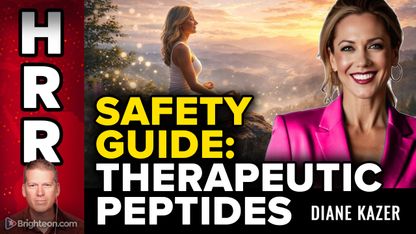
It may seem counterproductive to nap while you're trying to brainstorm for a project, but you have a higher chance of experiencing a "Eureka!" moment after you rest or sleep.
On sleep and creativity
People have their way of understanding certain things, and it can also be difficult to determine precisely when inspiration will strike. However, one thing is sure: People usually feel inspired after they get some rest and sleep. This is especially true when you're trying to resolve a problem.
You now have a scientific reason to let your ideas "incubate," like what author Steven Johnson advised in a recent presentation. In particular, certain factors can help you "improve your trajectory toward arriving at a moment of creative insight, understanding, or breakthrough."
Dr. Anne Cleary, a professor at Colorado State University who teaches a course called Science of Learning, talked about these factors, which include:
- Spreading out your attempts to reflect on a problem
- Taking a break if you feel "stuck"
- Resting or sleeping in between attempts
Earlier studies have already proven that sleep can boost learning and memory. Students would benefit most from this: Taking nap breaks while studying is an effective strategy for enhancing learning. Sleep boosts learning and memory because the memory consolidation processes that go on in the brain start when you're asleep.
Memories are "solidified and strengthened" when you're asleep, mostly in the phase called "Slow Wave Sleep" (SWS). SWS could be one reason why spacing out your study sessions throughout a week is more effective instead of cramming the day before an exam.
Studying during several sessions means you're simply reviewing knowledge and memories that are already in your brain. However, what does this have to do with sleep boosting your creativity, innovation, or understanding?
In 2004, Ulrich Wagner and his team from the University of Lübeck authored a study titled "Sleep Inspires Insight." The results of the study revealed that when individuals slept after they were first trained on problem sets with a hidden structure to them, participants had a 50 percent chance of discovering the hidden structure than if they didn’t sleep after they trained.
In a separate article, called "How Memory Replay in Sleep Boosts Creative Problem-Solving," Penelope Lewis and other researchers introduced a possible mechanism. Data from other studies have already proven that the SWS phase is mostly responsible for "the strengthening of memories and abstraction of gist." However, Random Eye Movement (REM) sleep, the phase when people dream, remains mostly unexplored. Lewis et al. hypothesized that mutual interaction between the SWS and REM phases across sleep cycles can help explain how sleep promotes creative insight.
The researchers suggest that as the SWS phase "works to abstract the gist from recent experiences" and adds to a person's existing general knowledge-base, the REM phase "works to spontaneously replay various memories from the cortex." This could explain why sometimes, your dreams may include random connections from your past that you remember. (Related: Boost creativity with sleep, meditation and exercise.)
These connections may not even be random, according to Lewis and her fellow researchers. They believe that the knowledge-formation which occurs during SWS can influence the brain to "activate distantly relevant memories from the cortex for replay during REM sleep." This means its possible that the brain can recognize some subtle connections between older memories and the newly formed knowledge that took place in the latest SWS phase. The brain then chooses some of the subtly-related older memories that are replayed during REM sleep.
This continues into a cycle where the replay during REM sleep influences the following SWS phase into abstracting the gist from the experiences that you've recently dreamt of. This can help establish the newly-detected connections in the knowledge-building abstraction phase. After several repetitions during a night's sleep, the mind is now ready to "make a mental leap" when you wake up, explaining how sleep helps channel innovations or insights.
This is just another reason why you need to stop cramming.
Start planning and spacing out your study sessions and take enough sleep breaks. You just might get the inspiration you need after a refreshing nap.
Tips to help you sleep better
If you're having trouble falling asleep, try the tips below:
- Eat light evening meals -- Skip the pizza if you're eating a late dinner. Try to eat a couple of hours before you turn in for the night, and don't consume anything that might give you indigestion.
- Exercise early -- Exercising can help you sleep better, but make sure you work out at least three hours before you go to sleep at night. When you exercise, it makes the body secrete the stress hormone cortisol that helps activate the alerting mechanism in the brain. This will only increase your alertness and make it harder to fall asleep.
- Stay hydrated -- Drink enough water at night, so you don't wake up because you're thirsty, but don't drink too much that you need to run to the bathroom every other hour.
You can read other articles about the link between sleep and human innovation at Brain.news.
Sources include:
Please contact us for more information.























